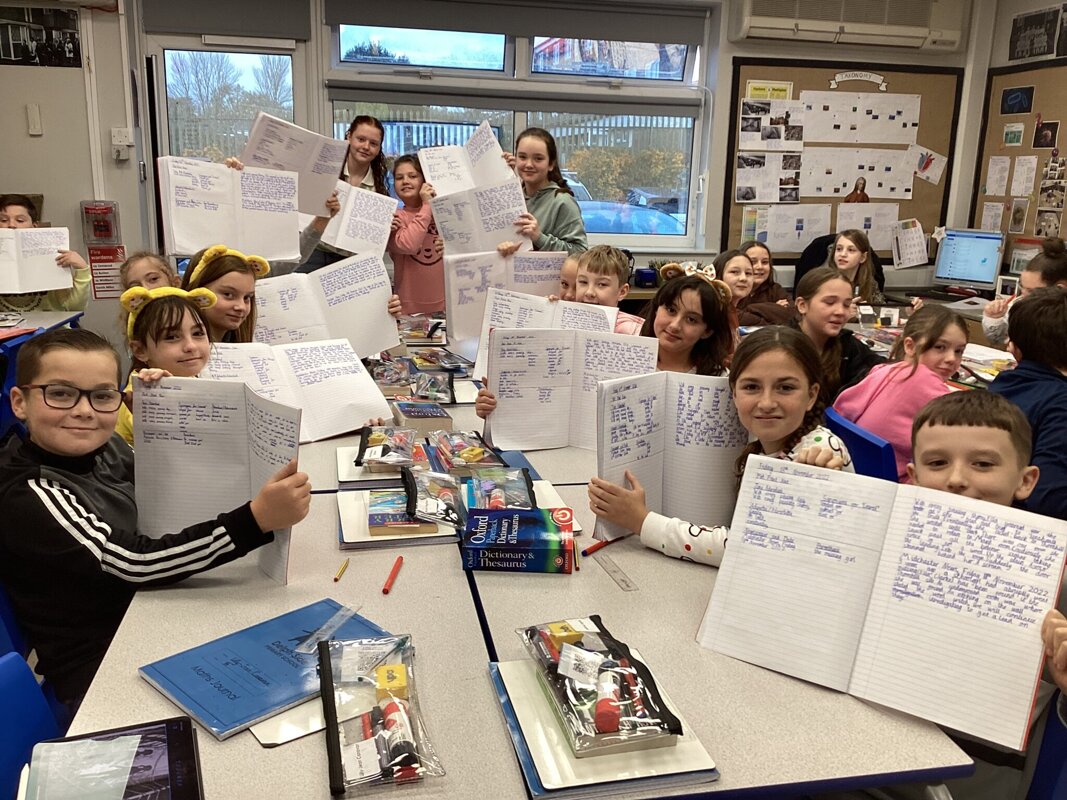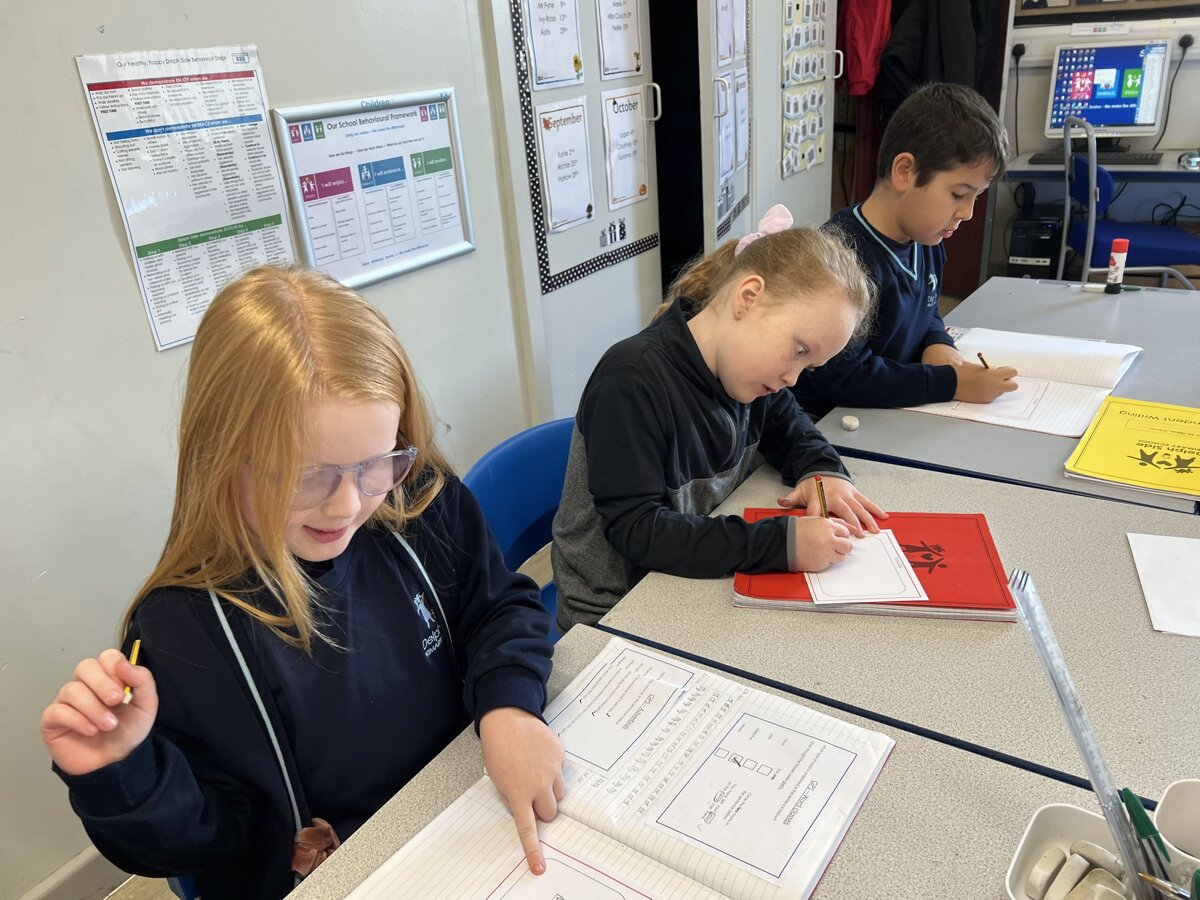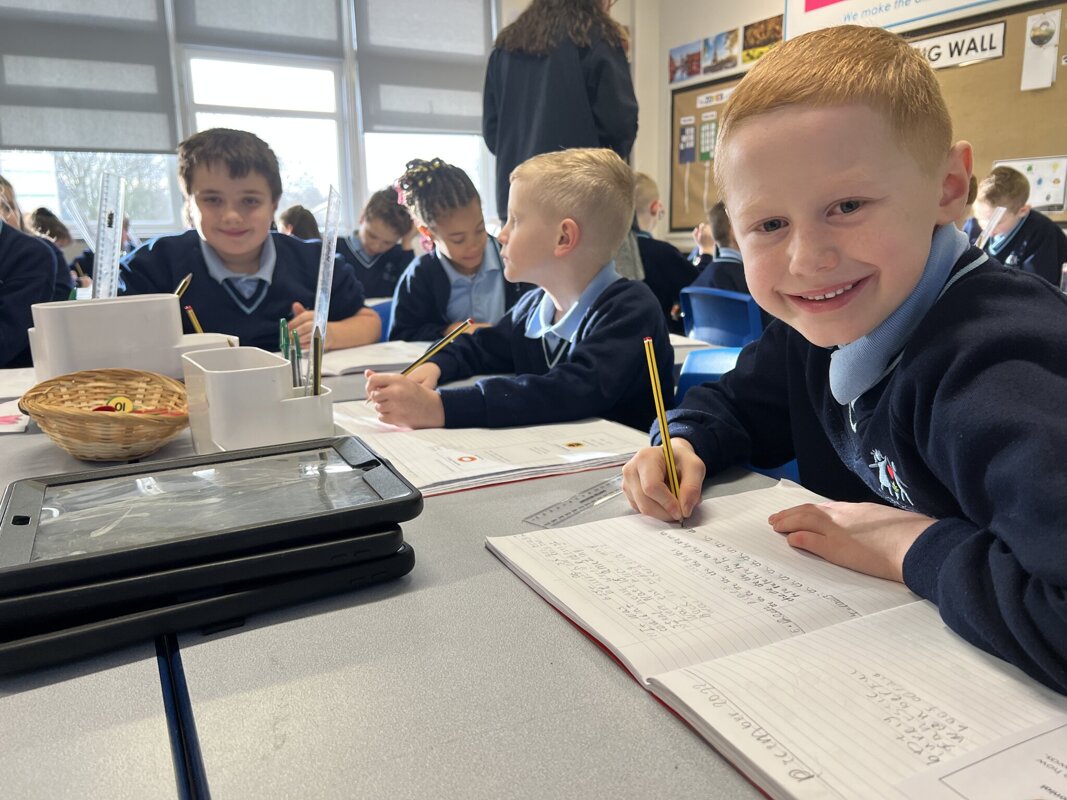Writing in KS1 & KS2
At Delph Side, children are taught to write using The Write Stuff approach to writing. This approach focusses on develop confident writers, whilst at the same time, developing a love of the process. Each writing using includes a range of experience days, sentence stacking lessons, grammar focussed lessons, planning lessons and opportunities to write independently, as well as time to edit independent pieces.



Experience Days
The aim of an experience day is to provide children with a rich experience which they can use to develop and enhance their future writing. These lessons can range dramatically in structure and content. An experience day may include drama, research or language development.
Sentence Stacking
Sentence stacking is the fundamental approach that underpins The Write Stuff approach to writing. This is an opportunity for children to develop their ideas, their language choices and to understand how to bring their ideas to life on a page. The ideas of writing are broken down into three categories: the FANTASTICS, GRAMMARISTICS, BOOMTASTICS. Each of these categories contain lenses which the children can use to structure their writing.
During a lesson, there will be three sentence stacks (20 minutes each). Each sentence stack will follow the following structure: initiate, model, enable. During the initiation phase, a stimulus may be used to spark intrigue and a lens/lenses will be chosen to build a sentence from. Language will be shared and developed as a class and recorded in books. This is an open discussion between the teacher and children. Language is shared, discussed, accepted and rejected.
During the modelling phase, the teacher will model the construction of a sentence at the front of the class using the lens/lenses and ideas and language that was developed as a class. The teacher will think out loud during this phase so that the children understand the thought process behind constructing a sentence.
During the enable phase, children have the opportunity to construct their own sentence using their ideas. Children are encouraged to think independently, use ideas that they feel are powerful to make their writing their own. The idea is that they can develop ownership of their sentence.
Some children may ‘deepen the moment’ which involves deepening the idea that they are currently focused on – they do not move their writing on, but instead, deepen this moment/point further.
Children’s work is shared at the end of each sentence stack to allow their ideas to be celebrated and also as a chance for the teacher to pick up on any errors or misconceptions. Children, including those with SEND, will be provided with additional support during sentence stacking lessons. They are to be provided with initial ideas and sentence structure prompts.
Grammar Lessons
Grammar lessons can be used in two ways: to prepare children for future sentence stacking lessons or to act on feedback from a previous sentence stacking lesson. These lessons are to focus in deeper on a particular skill that would be unable to be taught fully during a sentence stack.
Planning Phase
The planning phase allows children to develop their own ideas. During this phase they will plot out the structure of their text and will use the lenses to structure their writing. There will also be time during this phase to develop vocabulary and to take part in additional experience days if required.
Independent Writing
All independent writing is to take place in independent writing books. These books move up through school with children so that there is a chronology of their writing journey.
Feedback
Feedback will be given to children as a class post independent writing. Writing will be edited in these books by children using green pen. In some instances, children will rewrite part of their text in response to feedback. This may be individual sentences or an entire paragraph. Sentence strips are to be stuck in the margin so that it is clear what their writing was before and after editing.
English Policy